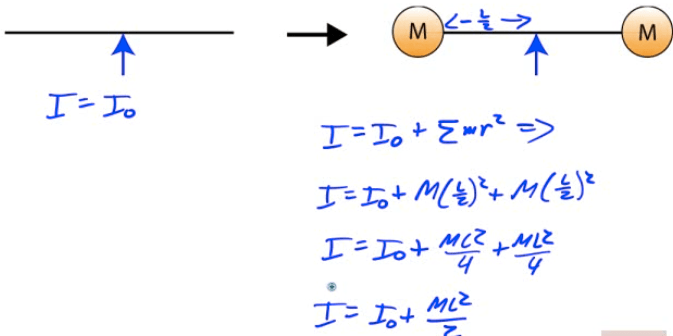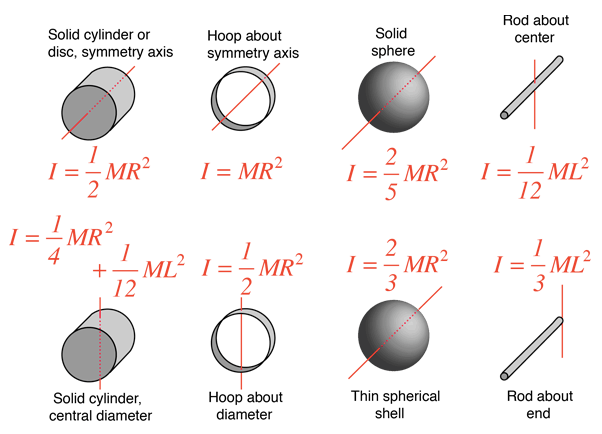Types of Inertia
Inertial mass / translational inertia (M) is an object's ability to resist a linear acceleration
Moment of Inertia / rotational inertia (I) is an object's resistance to a rational acceleration
Objects that have most of their mass near their axis of rotation have smaller rotational inertias than objects with more mass farther from their axis of rotation
Kinetic Energy of a Rotating Disc
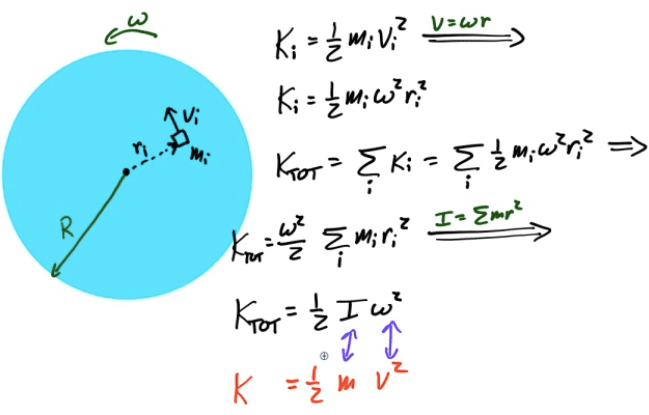
Calculating Moment of Inertia (I)
Example 1: Point Masses
Find the moment of inertia (I) of two 5-kg bowling balls joined by a meter-long rod of negligible mass when rotated about the center of the rod.
Compare this to the moment of inertia of the object when rotated about one of the mass
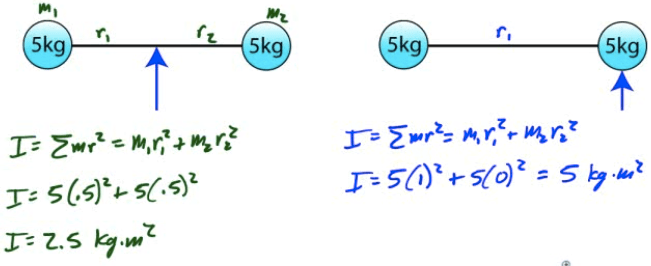
Example 2: Uniform Rod
Find the moment of inertia of a uniform rod about its end and about its center
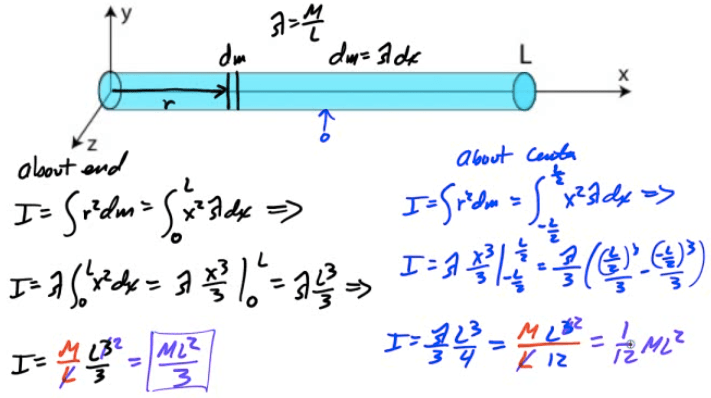
Example 3: Solid Cylinder
Find the moment of inertia of a uniform solid cylinder about its axis
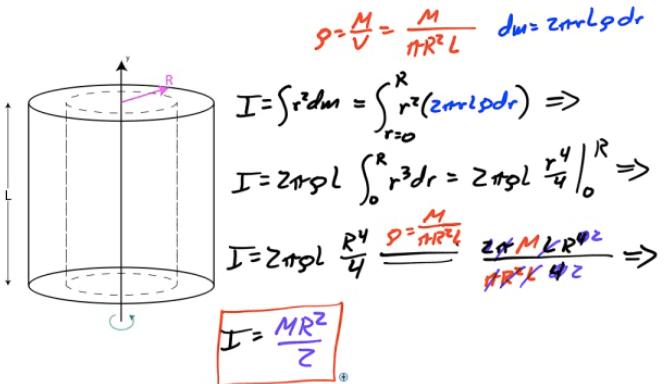
Parallel Axis Theorem (PAT)
If the moment of inertia (I) of any object through an axis intersecting the center of mass of the object is l, you can find the moment of inertia around any axis parallel to the current axis of rotation (l')
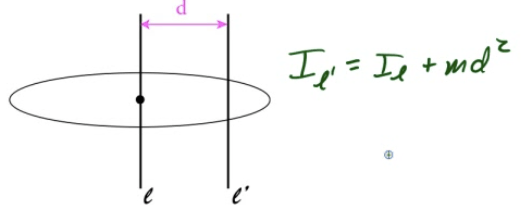
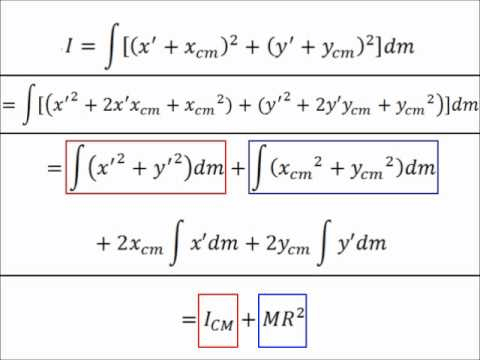
Example 4: Calculating I Using PAT
Find the moment of inertia of a uniform rod about its end
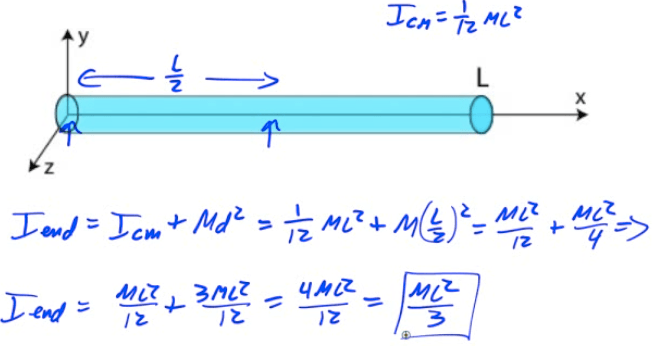
Example 5: Hollow Sphere
Calculate the moment of inertia of a hollow sphere with a mass of 10 kg and a radius of 0.2 meter

Example 6: Adjusting Moment of Inertia
A uniform rod of length L has moment of inertia I0</sub when rotated about its midpoint.
A sphere of mass M is added to each end of the rod.
What is the new moment of inertia of the rod/ball system?
